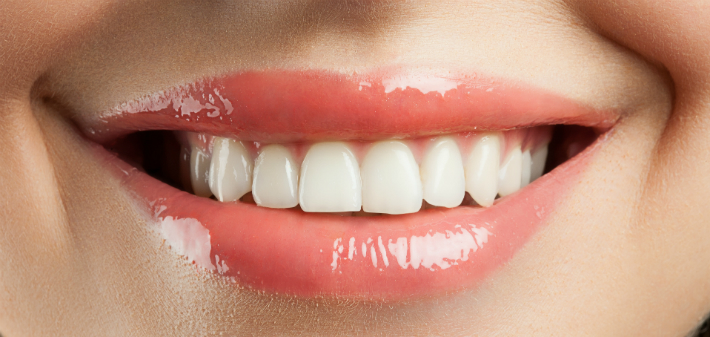FAQ: Can You Whiten Crowns, Implants, and Veneers?

March 27, 2017
Drop those whitening strips! If you have dental implants, crowns, veneers, or dentures, you need to know the right way to keep them white.
Patients often assume that their dental prosthetics have the same characteristics as real teeth. While this is often true as far as biting and chewing are concerned, there are important differences between natural teeth and prosthetics, notably in terms of how they respond to whitening.
Therefore, before you get implants, veneers, or crowns, it is important to discuss their effects on appearance with your Little Rock cosmetic dentist. By understanding what makes prosthetic teeth unique, you can continue to have a beautiful and functional smile.
Can I whiten crowns, implants, veneers, or dentures?
The short answer is “no.”
Traditional whitening treatments do not work on porcelain or most bonding materials, making it effectively impossible to whiten veneers, dentures, crowns, or implants once they are in your mouth.
It is possible, however, to whiten prosthetic products before installing them. Porcelain prosthetics are highly resistant to stains, remaining the same color no matter what foods and beverages they are exposed to. Thus, if you whiten prosthetics ahead of time, you can count on those parts of your mouth to maintain their color indefinitely.
Veneers and other prosthetics that are not made of porcelain may become stained, depending on the porosity of the material. Plastic prosthetics are particularly likely to darken overtime, but can be whitened with a simple polish from your dentist.
What types of coloration problems arise with porcelain dental prosthetics?
Porcelain’s tendency to keep its color is both a blessing and a curse for your mouth. The downside is that if your natural teeth change in color, they will contrast with the prosthetics, making it obvious which parts of your mouth are artificial. This may happen if you install veneers or crowns that are too white for your teeth, or if your teeth become stained after you have prosthetics put in.
Alternatively, you may have prosthetics installed that are the same color as your teeth, but then have your teeth whitened, making the prosthetics look stained by comparison.
How can I make sure my porcelain prosthetics match my teeth?
The most effective way to keep your teeth and prosthetics equally white is to plan ahead. If you intend to whiten your teeth, do so before you have any crowns, veneers, or implants put in. Your dentist will then see the stark white color of your teeth and prepare the resin to match them.
If you already have prosthetics, you can get them replaced after you have your teeth whitened. Once you are finished, take care to maintain the color of your teeth by brushing regularly and minimizing your consumption of coffee, blueberries, and other substances that cause stains. You can also obtain periodic whitening treatments from your Little Rock cosmetic dentist or use over-the-counter whitening gels.
Are there any other cosmetic problems associated with prosthetic teeth?
Patients who have porcelain veneers sometimes develop small brown lines in the area where the veneer and tooth meet. This indicates that the gum line has receded, exposing the adhesive that holds the tooth and the veneer together, which has been stained from exposure to dark foods and beverages. If this occurs, talk to your dentist about strategies to slow the rate of gum recession.
With help from your Little Rock cosmetic dentist, the process of taking care of dental prosthetics can be easy. For more information on cosmetic procedures, prosthetics, and other dental topics, contact Arkansas Family Dentistry by calling (501) 683.8886 today.
Connect With
Call (501) 232-6273 or request an appointment online to set up your first visit. We’ll be in touch soon.
